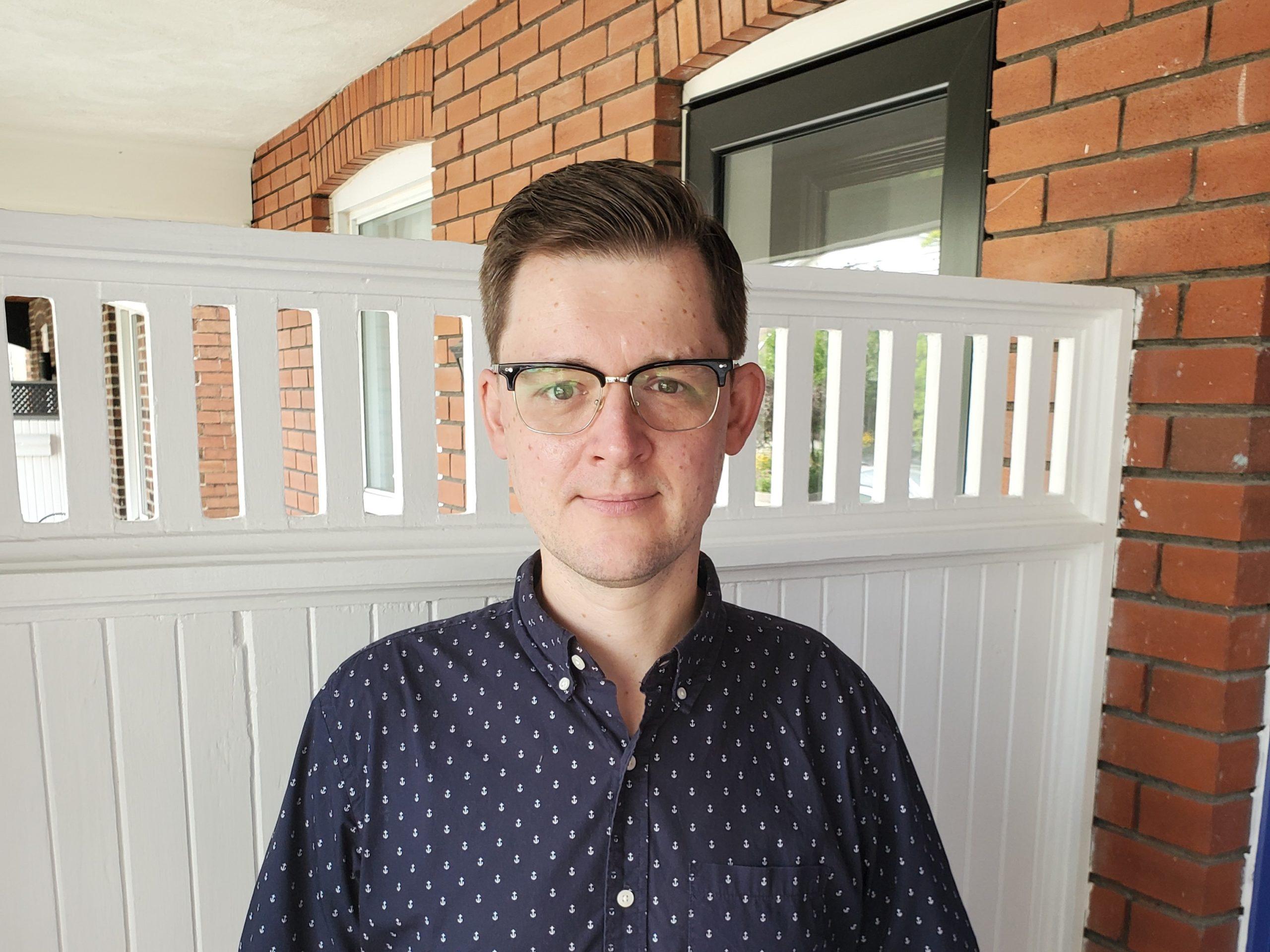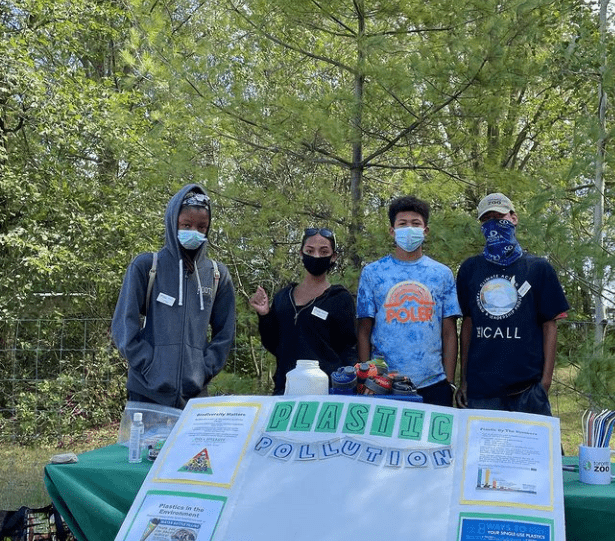The following story was written in partnership with East Toronto Health Partners (ETHP), a group of more than 50 community, primary care, home care, hospital and social services organizations in East Toronto, including WoodGreen Community Services, working together to create an integrated system of care across our communities. To learn more about ETHP’s work, click here.

From left, Nadjib Alamyar, supervisor of newcomer coordinated care; Irum Nazir, case counsellor specialist; Mohan Doss, director of newcomer services; Tharnya Sivanithy, case counsellor specialist; and Sarah Ferguson, case counsellor specialist at WoodGreen Community Services.
By Sarah Ferguson, case counsellor specialist, IPC team, and Nadjib Alamyar, supervisor of newcomer coordinated care, IPC team
The process of system navigation is often an overwhelming task for individuals, and in particular newcomers, who need support within and beyond the medical system. This is even truer during a global pandemic when most services are offered virtually.
While any individual or family may seek or receive support from a family physician, settlement worker, social worker, care coordinator or other healthcare or social services professional, the isolated ways in which these services typically operate results in a lack of coordination. This means that individuals or families are frequently bouncing around inside or between systems, not knowing where to go and leaving their needs unmet. This can lead to individuals either ending up in the Emergency Department or choosing not to seek help for an issue that may impact their lives drastically in the long run.
Enter inter-professional primary care (IPC) teams within East Toronto Health Partners (ETHP), a network of more than 50 community, primary care, hospital and social services organizations that serves East Toronto. Much like ETHP, IPC teams bring together a group of healthcare professionals from different fields with the goal of improving access to relevant healthcare, social supports and community resources. This is done by strengthening collaboration among healthcare and service providers, as well as the coordination and integration of these services. Ultimately this leads to better health outcomes for patients receiving care from an IPC team.
The IPC team works involves social services professionals from WoodGreen Community Services working in partnership with family physicians represented by East Toronto Family Practice Network (EasT-FPN) in Taylor-Massey, a densely populated neighborhood in East Toronto. The team is comprised of medical staff and three Case Counsellor Specialists. They provide support to complex clients with an immigrant background by addressing challenges related to social determinants of health (housing, employment, social support, income, education, access to services, etc.).
As a result of its structure, the IPC team provides a unique opportunity to bridge medical care and community and social services for newcomers and those with immigrant backgrounds, allowing patients’ needs to be addressed holistically. From a service provider perspective, coordination and collaboration with other healthcare providers increases the ability to understand clients’ needs and provide or refer to services that meet those needs. From a client perspective, the integration and collaboration of a healthcare team reduces the onus on the individual from seeking, finding and/or knowing what services exist, which ones may suit their needs, and how to access them — all on their own.
Consider the experience of Safia*, a recent client of the IPC team. Safia was referred to the IPC team when she was 27 weeks pregnant with twins and alone. She had no family or friends in Canada, her partner was abroad and this was her first pregnancy. Safia’s main concern was the lack of social support she had leading up to her birth, and she was worried about what it would look like for her to care for her newborns alone post-partum.
Through supportive counselling, system navigation and case management, her case counsellor specialist connected her to an organization called Birth Mark, a local non-profit that provides support to pregnant people who are marginalized or considered at-risk from experiencing poverty, past traumas and/or discrimination. Birth Mark matched Safia with a doula who is providing her support pre- and post-partum.
It is well-known that social support is a protective factor for depression, enhances self-esteem and improves one’s ability to cope with stressful situations. Through the IPC team, Safia was able to access a social support that her family physician, and herself, were otherwise unaware of. As a result of the integration of settlement services in the healthcare setting through the IPC team, Safia received wraparound care and is socially supported. She now has a knowledgeable, helping hand available to assist her as she becomes a new parent to twins.
When individuals receive primary care from a physician and are encouraged to find additional supports that address other social determinants of health on their own, individuals often become frustrated in the process of finding services that meet their needs and may give up along the way. What’s more, some may not even seek out additional support due to the overwhelming experience of navigating the system on their own or not knowing where to start, not to mention the language barriers that prevent newcomers from seeking support.
IPC teams are a crucial part of ETHP because it connects partners with WoodGreen’s newcomer services that can assist with language barriers when necessary and connect individuals with non-medical services and family physicians for care. The coordination of care through IPC teams tangibly improves health outcomes for patients, and in the case of Safia, for both herself and her children now and in the future.


